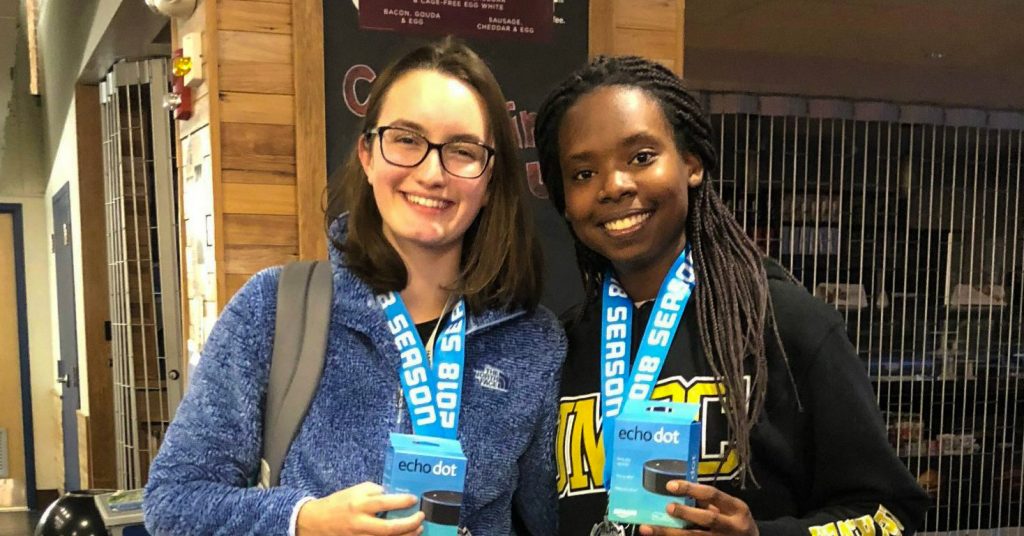UMBC students win Opioid Epidemic Challenge Award at HackAE hackathon
Two students in the College of Engineering and Information Technology were recognized at HackAE, a 24-hour hackathon, earlier this month for developing an innovative app to help teens struggling with opioid issues. Agatha Turyahikayo ’21, computer science, and Gabrielle Watson ’21, information systems, won the “Opioid Epidemic Challenge Award.”
Now in its second year, the HackAE event brings America East conference students together to build software and hardware projects that address the real-world challenges facing our neighborhoods, cities, states, and country, with a specific emphasis on issues pertaining to cybersecurity, education, environmental sustainability, and health and wellness. This was the first time UMBC participated.
“Agatha and Gabrielle have applied the capabilities of crowdsourcing and social media with their app-development prowess to create a proof-of-concept app that can not only help teens at risk of opioid problems take confidence-building steps to try and help themselves but also help reduce the flow of new entrants to the nation’s opioid crisis and thus help society at large,” explains Rick Forno, assistant director of the UMBC Center for Cybersecurity and director of the Cybersecurity Graduate Program at UMBC, who is a faculty advisor of HackUMBC. “Empowering teens in this way, and especially in trying to overcome this devastating national problem, can help build and strengthen community ties and foster resilience within their generation, which among other things can reduce medical costs, law enforcement incidents, incarceration rates, and help create a healthier society for all.”
Watson and Turyahikayo were asked to create an opioid prevention platform specifically for teens. The app they developed pairs teens in need with teens who wish to help others facing opioid challenges.
The opioid epidemic facing the country affects every community and demographic; however, Turyahikayo said that she was surprised to learn how widely teenagers are affected by the crisis. “Unfortunately, many of the resources we found for opioid abuse didn’t target teens very well and were not reaching those who needed help,” she explained, which led her and Watson to create an app that teens could access on their mobile phones.
While Turyahikayo and Watson were recognized for the app they created, they faced some challenges during the hackathon. They did not have prior experience developing Android apps, but used trial and error to figure out how the Android Studio program would allow them to develop an app during the hackathon. Turyahikayo is planning to continue to develop the app over winter break.
Not only does the app connect teens in need of help, it also offers a range of helpful resources. “It can help loved ones to recognize the signs of opioid abuse and help those who don’t realize they have a problem,” Turyahikayo explains.
Adapted from a UMBC News story written by Megan Hanks. Banner image: Gabrielle Watson, right, and Agatha Turyahikayo at HackAE. Photo courtesy of Agatha Turyahikayo.
